Education
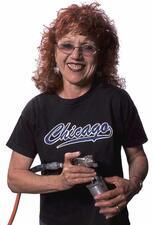
Judy Chicago
Hannah Chizhik
Hannah Chizhik was an advocate for women’s emancipation and she was committed to the women workers movement. She became an expert in vegetable farming, agricultural work, and domestic labor for the groups of women pioneers. In 1926 she established a women’s smallholding in Tel Aviv, which became an important center for pioneer youth.
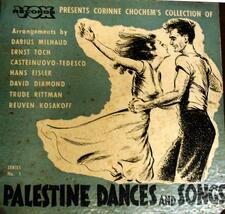
Corinne Chochem
Best remembered for her contribution to Jewish cultural life and for her unique ability to inspire those around her, Corinne Chochem had a distinct impact on Hebrew folk dance, both in her teaching and her two books, Palestine Dances (1941) and Jewish Holiday Dances (1948).

Hélène Cixous
Jewish-Algerian-French writer Hélène Cixous published her first book in 1967 and approximately her eighty-seventh in February 2021. This “life writing” comprises poetic fiction and autobiography, literary and feminist theory, art criticism, and theatrical works. Cixous explores the myriad contradictions and consequences of loss and exile, of “being Jewish” and “being a woman.”
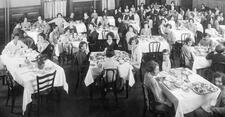
Clara De Hirsch Home for Working Girls
The Clara de Hirsch Home for Working Girls was established in May 1897 to provide housing, occupational training, and community to mostly poor and immigrant young women in New York City.
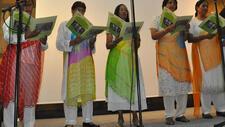
Cochin: Jewish Women's Music
For many centuries, Cochin Jewish women have sung Jewish songs, both in Hebrew and in the Malayalam language of Kerala, their ancient homeland on the tropical southwest coast of India. Kerala Jews are unusual among halakhically observant communities in the complex intertwining of female and male knowledge and performance throughout their musical repertoire.
Audrey Cohen
Audrey Cohen was the founder and president of Audrey Cohen College in New York City, which emphasized a purpose-oriented understanding of education. In 1964 she founded the earliest iteration of Audrey Cohen College, Women’s Talent Corps, which combined study with on-the-job training and greatly benefited low-income women.
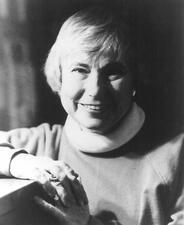
Barbara Cohen
When Barbara Cohen died, she left behind an exceptional body of children’s literature. Cohen was adventurous, seldom repeating herself, always trying new ideas, settings and themes. In her books, she confronted taboo subjects of assimilation, racism, and cancer with both sensitivity and remarkable honesty.
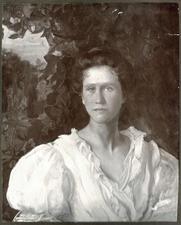
Hannah Floretta Cohen
Hannah Floretta Cohen was the first woman president of Britain’s traditionally male Jewish Board of Guardians for Jewish Poor Relief. She also promoted many other Jewish and non-Jewish charitable organizations to promote women's education, to benefit the sick and the elderly, and to encourage investment in the Palestine Mandate, through her public speaking, financial expertise, and administrative skills.
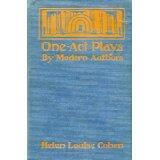
Helen Louise Cohen
Naomi W. Cohen
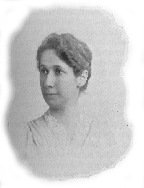
Nina Morais Cohen
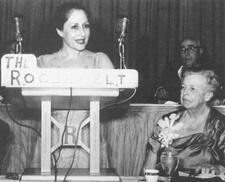
Rosalie Cohen
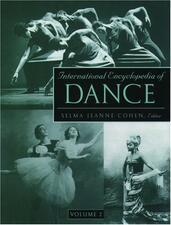
Selma Jeanne Cohen
It was Selma Jeanne Cohen’s mission in life to make dance scholarship a respected field, taking its place with the study of the other arts both in society and, particularly, the university. As a writer, editor, and teacher, she was a leader in transforming dance history, aesthetics, and criticism into respected disciplines. Cohen founded the Society of Dance History Scholars and received the first Dance Magazine Award ever given to a dance historian.
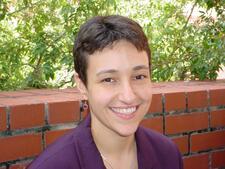
Tamara Cohen
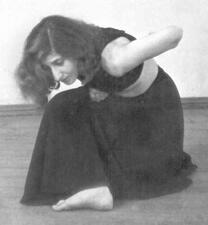
Yardena Cohen
Incorporating biblical themes and Sephardic music into her dances, Yardena Cohen helped create a uniquely Israeli artistic culture. Cohen opened her Haifa dance studio in 1933 and maintained it for some seventy years, stressing creative dance. She continued to teach well into her nineties and in 2010 was awarded the Israel Prize for Lifetime Achievement.
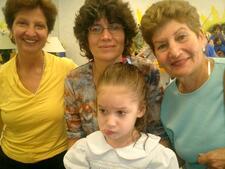
Dianne Cohler-Esses

Fannia M. Cohn
Fannia M. Cohn was one of the leading Jewish women trade union activists in the United States. Drawing on her Russian Jewish cultural traditions, she pioneered the development of educational programs within the International Ladies Garment Workers Union (ILGWU).
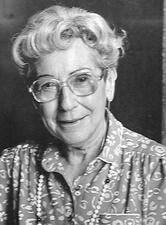
Mildred Cohn
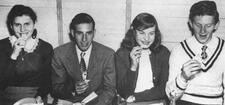
College Students in the United States
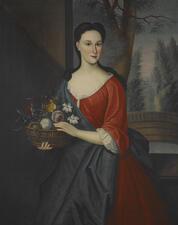
Colonial Period in the United States
Jewish women in colonial America led varied lives, with some occupying traditional roles as mothers and wives and others remaining single. Some ran their own businesses and others worked as servants for Jews with more money. Both in and out of the synagogue, women played a crucial role in early American Jewish communities.
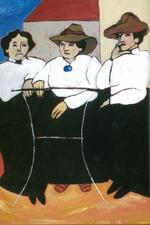
Claribel Cone
Claribel Cone was well known in her time for being a dignified and highly independent woman with two passions: medical research and collecting art and artifacts. She is immortalized in drawings by French modernists Pablo Picasso and Henri Matisse and in Gertrude Stein’s essay “Two Women.”
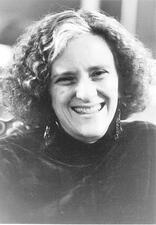
Conservative Judaism in the United States
Women have played a pivotal role in propelling the Conservative Movement to confront essential issues including Jewish education and gender equality. The Movement’s attention to issues such as the religious education of Jewish girls, the status of the agunah (deserted wife), equal participation of women in ritual, the ordination of women, and innovations in liturgy and ritual to speak to women’s experiences has helped to shape the self-definition of Conservative Judaism, and has enabled talented Jewish women to reach new heights in religious leadership.
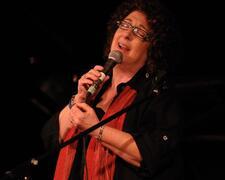
Adrienne Cooper
A versatile performer, scholar, administrator, and activist who worked in the fields of Yiddish culture, Jewish music, social justice, and feminism, Adrienne Cooper inspired international audiences with her compelling performances and nurtured a generation of musicians, academics, and advocates.


